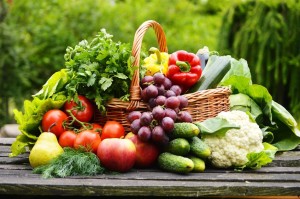Expert Gardening Tips for how to Grow Vegetables Even in Shady Spots
 If you have a yard that is largely shaded, you may think that you cannot enjoy growing your own summer vegetables. It’s true that sun-soaked spaces can offer home to all kinds of delicious bounty. However, it’s also true, that gardens with a substantial amount of shade can still produce fabulous fruits and vegetables. Here are some expert gardening tips for those whose garden is showered with just three to four hours of daily sunshine.
If you have a yard that is largely shaded, you may think that you cannot enjoy growing your own summer vegetables. It’s true that sun-soaked spaces can offer home to all kinds of delicious bounty. However, it’s also true, that gardens with a substantial amount of shade can still produce fabulous fruits and vegetables. Here are some expert gardening tips for those whose garden is showered with just three to four hours of daily sunshine.
Making the Most of the Light you Have
If your garden only gets a few hours of direct sunlight, you’ll want to make the most of what you get. There are gardening tips to maximize garden light. You can paint walls around the garden white and that will help reflect light and warmth back onto your plants. You can also intensify available sun by placing aluminum foil at ground level. Mirrors have the same effect. If you grow fruit along walls, be sure to spread out limbs so that all parts of the plant benefit from the hours of light.
Creating a Warm Environment
Cool weather gardeners employ tricks to warm up the soil like using cloches and cold frames to help hold in much needed warmth for growing plants. Row covers placed over tiny seedlings can also work. Since sunlight and warmth are particularly necessary when sprouting plants, you might consider starting your vegetables in pots indoors under a grow light. Once they are a healthy size, transplant them into the low-light garden.
Which Vegetables Tolerate Shade
You’ll want to select plants with minimal light requirements in order to have the best chance of success. Greens like lettuce, kale, chard and arugula do just fine with only a few hours of sunshine. If your garden receives gentle morning sun, try planting celery, bush beans or carrots. By contrast, if your space gets sun in the afternoon hours, try plants which can climb to bask in rays – cucumbers, peas and beans can do well in this environment. Fruits that tolerate shade well include sour cherries, gooseberries and currants.
Ground Issues in the Shade
There are certain issues on the ground which tend to be more problematic in the shade. The soil may be damp and clumpy. To compensate, simply mix in healthy amounts of compost to keep things draining well. Slugs may be more bothersome to shade plants. Beer traps are an easy way to keep them away from your produce. Lastly, you can wait a bit longer before putting down mulch in less sunny garden areas.
Whether you have a garden with full day sun or one coping with shade, there are gardening tips to help you get the most from the ground you cultivate. One of the gardening tips that works equally well in sun or shade is the use of plant markers. Plant markers help you keep vegetables and fruits identified. And Kincaid Plant Markers offers superior plates for every kind of gardener or garden. Contact us and order yours today.
